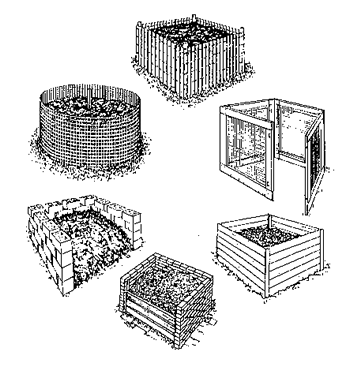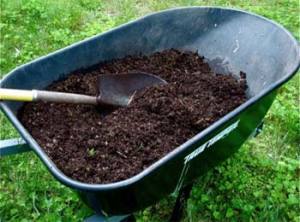
 When considering disaster preparedness the first things that normally come to mind are food, water, protection, alternate power supplies etc. And there is a reason for this: these are the things we use every day, and we need them to maintain any semblance of a normal life. However there are many other aspects to consider when creating your overall preparedness plan, especially if you are hoping to attain a significant level of self-sufficiency (a difficult but worthwhile goal). Composting is one thing that most people have probably never considered as part of their preps, but has some key advantages in the area of self sufficiency.
When considering disaster preparedness the first things that normally come to mind are food, water, protection, alternate power supplies etc. And there is a reason for this: these are the things we use every day, and we need them to maintain any semblance of a normal life. However there are many other aspects to consider when creating your overall preparedness plan, especially if you are hoping to attain a significant level of self-sufficiency (a difficult but worthwhile goal). Composting is one thing that most people have probably never considered as part of their preps, but has some key advantages in the area of self sufficiency.
This article is part 1 and will explain the benefits of composting for the prepper, while part 2 will outline how to compost effectively and efficiently.
The key benefits of composting for the prepper are:
1. Elimination of waste
2. Creation of rich soil for gardening
3. Production of food supply for animals (vermi-composting)
1. WASTE ELIMINATION:
In many potential disaster of SHTF scenarios (perhaps MOST) the normal process of waste disposal is likely to be disrupted. Not only would this apply to household trash that you normally put out by the curb, but could also include human waste if sewer services are disrupted, or if your septic system has an issue and maintenance isn’t available.
While not everything is compostable, the vast majority of things we normally throw away can be composted. All papers and cardboard, as well as anything made from paper (cups, plates, napkins, etc), any food waste, vegetable waste, and even human and animal excrement.
You may have heard that you can’t compost meat products, but that isn’t true. To reduce the issue of flies, vermin, and smell, it is recommended that you put any meat or cheese or rotten items in a closed compost container, or bury them inside the pile as much as possible. If you are interested in vermi-composting, a Black Soldier Fly larva bin can process several POUNDS of waste every day1!
For human waste it is recommended you use a dedicated compost system as outlined in the Humanure Handbook2.
Of course things like glass, metals, and most plastics are not compostable, but in a disaster situation it is unlikely that you would have much of those materials that you were interested in getting rid of.
2. CREATION OF RICH SOIL:
While being a great way to reduce waste, composting simultaneously creates nutritious soil for gardening and growing food. Some level of food production should be a part of your long-term disaster plan, and being able to create your own nutritious soil without outside resupply could be a huge advantage if you are unfortunate enough to have to face a protracted SHTF situation. Even in areas with good natural soil you can benefit from having the extra nutrients, worms, etc that are present in compost.
3. PRODUCTION OF FOOD SOURCE
Vermi-composting is the process of using worms or larva to break down organic material. This process is usually much faster than the standard aerobic composting process, and has the added benefit of being able to produce a surplus of worms / larva if you desire. Many preppers have chickens, other fowl, fish, or other animals, and having a vermi-composting system can be a way to create a supplementary or emergency food source for them. In a dire emergency, the worms could be eaten by humans as well3.
Two common composting worms are redworms and Black Soldier Fly larva. Each has advantages and disadvantages4, but the most commonly used is the redworm, due to the simplicity of raising them, and their tolerance for various climates.
Setting up a redworm bin is a relatively simple process5, and will create super rich soil (known as worm castings) in a relatively short amount of time.
These benefits make composting something important to consider for every prepper who is interested in self-sufficiency and has a little bit of yard space.
Citations:
1. https://www.youtube.com/watch?v=GkCbQwghkts
3. http://www.livestrong.com/article/472699-worms-as-a-food-source-for-humans/
4. https://www.youtube.com/watch?v=NkgGAo429UY
5. https://www.youtube.com/watch?v=ReY39SPa4M8
